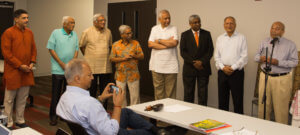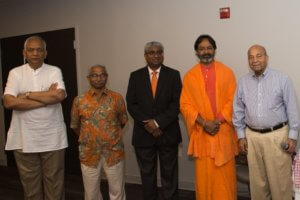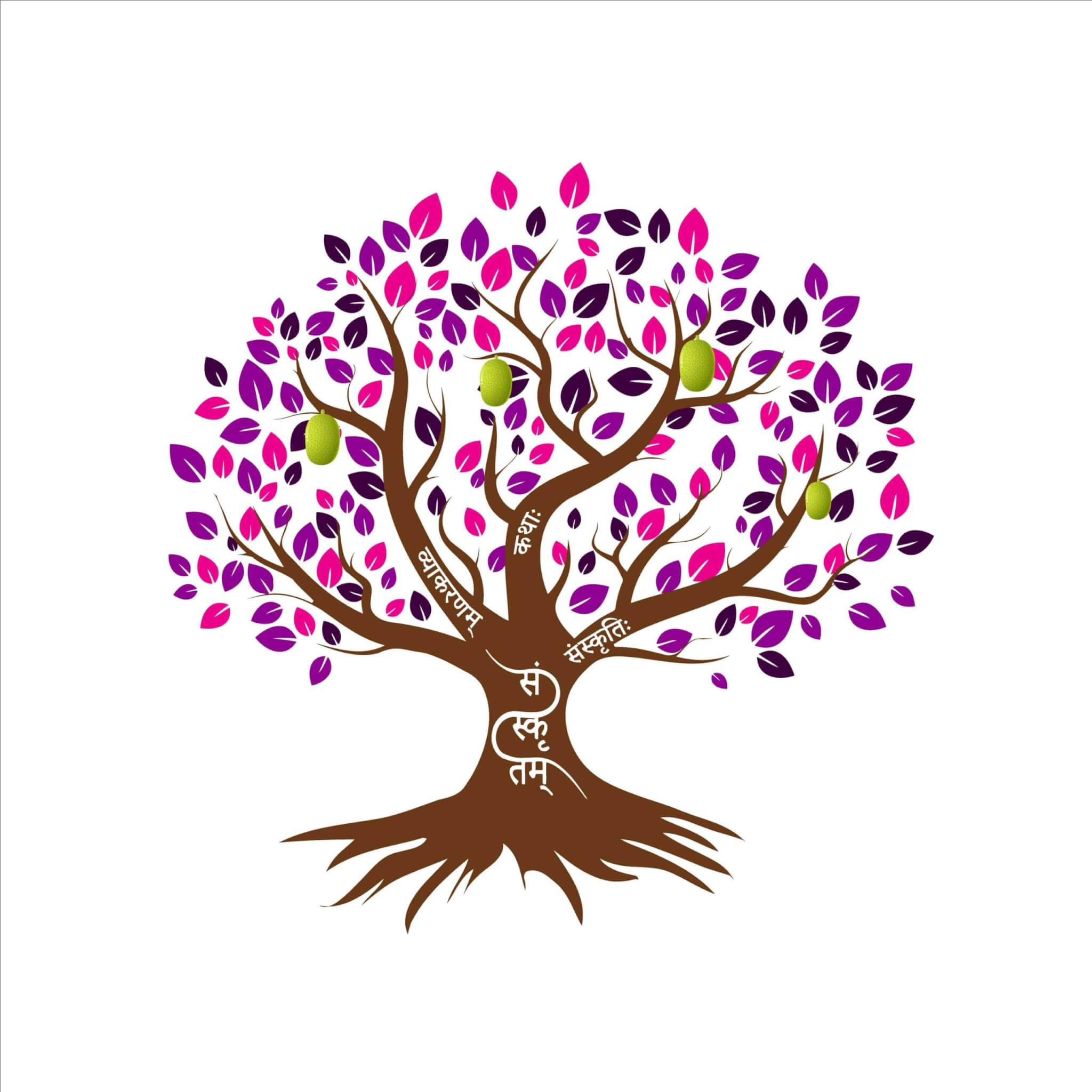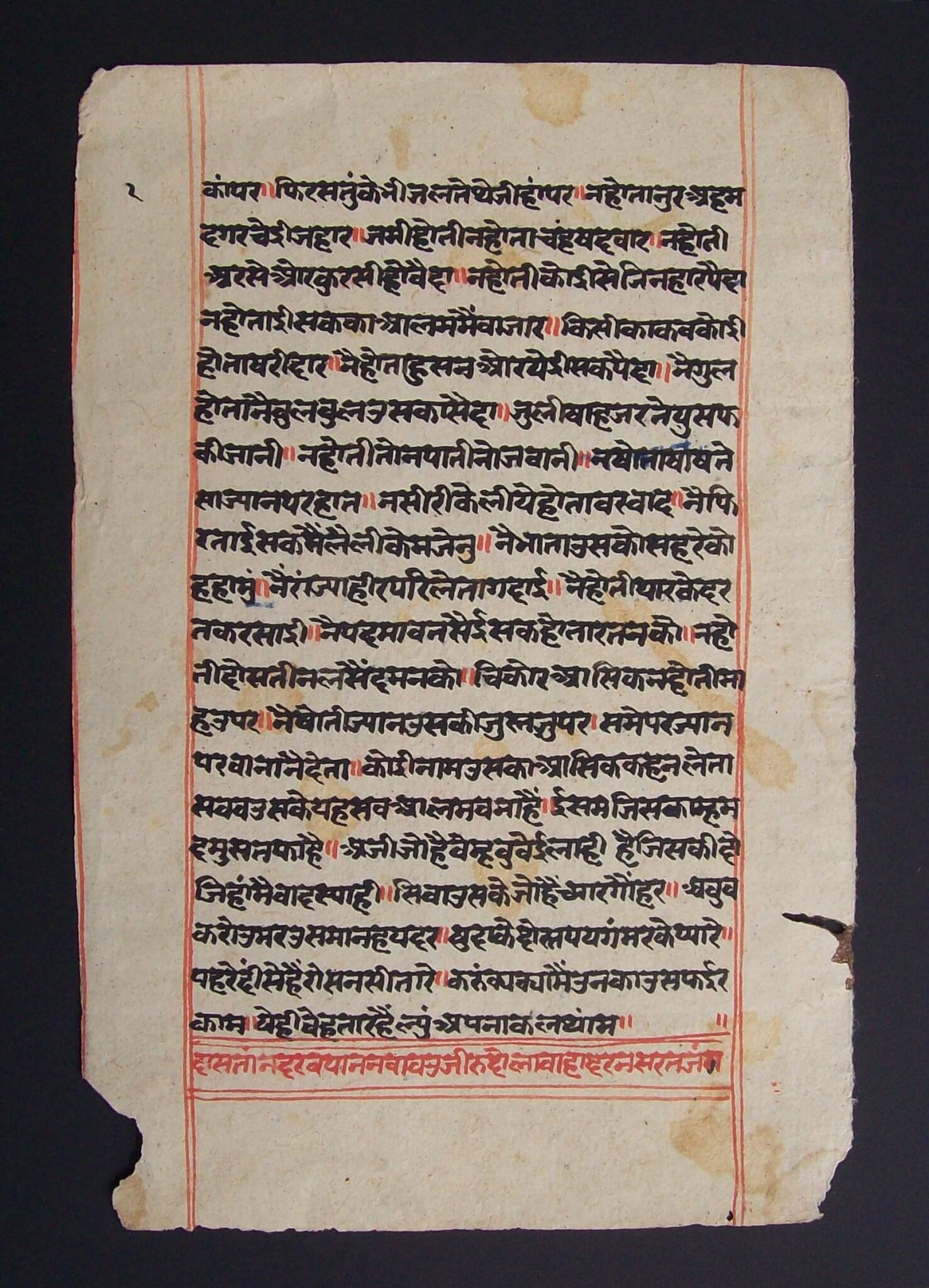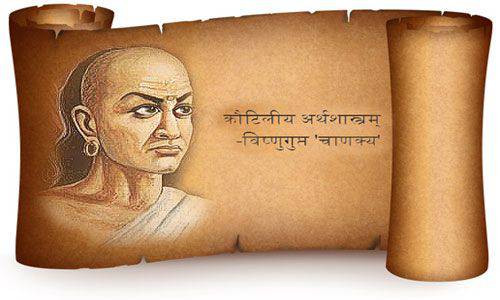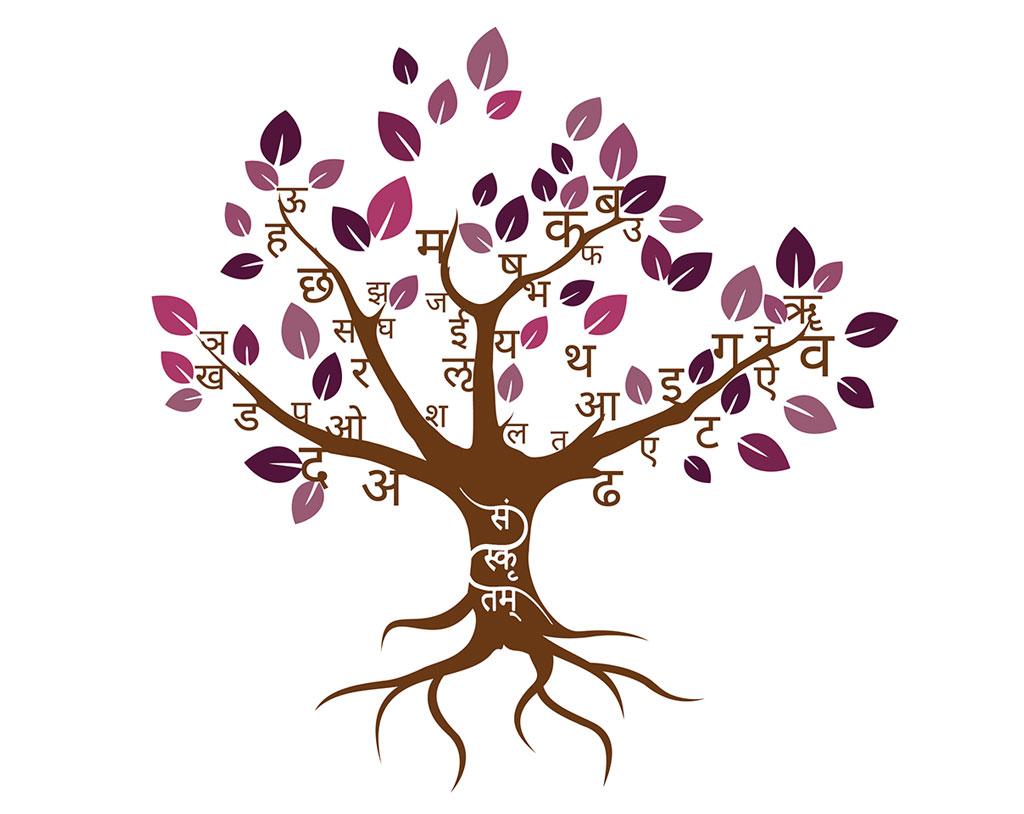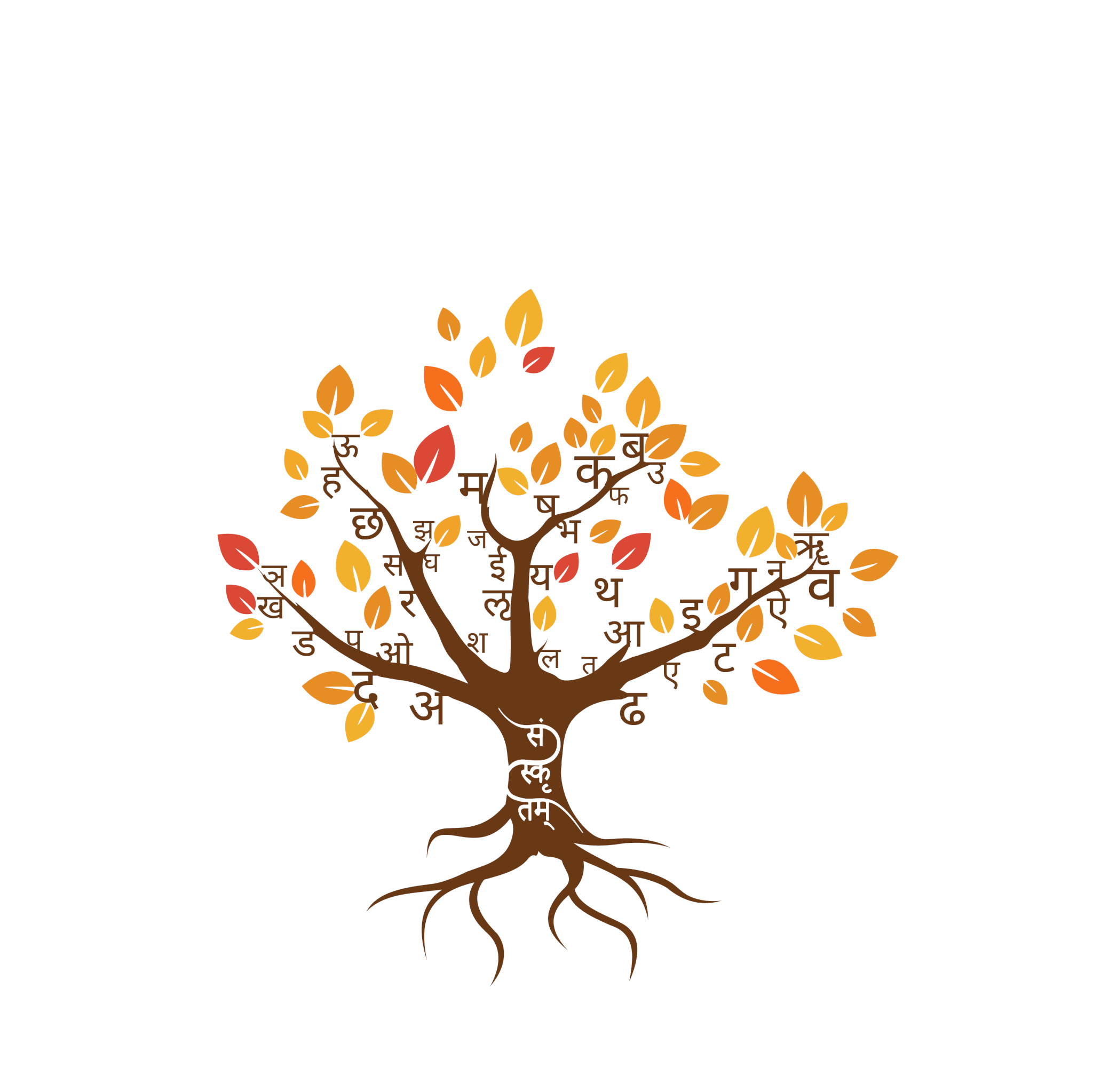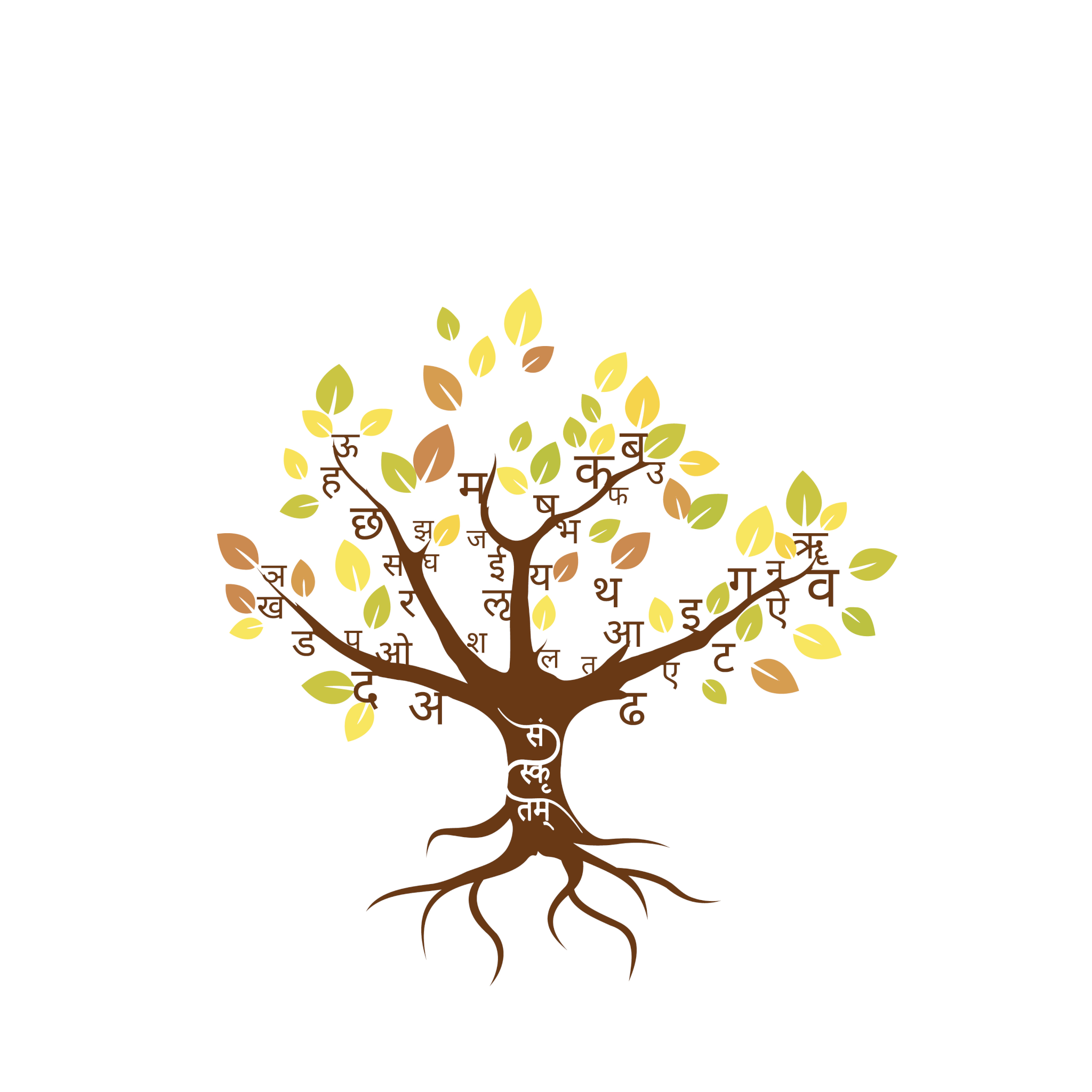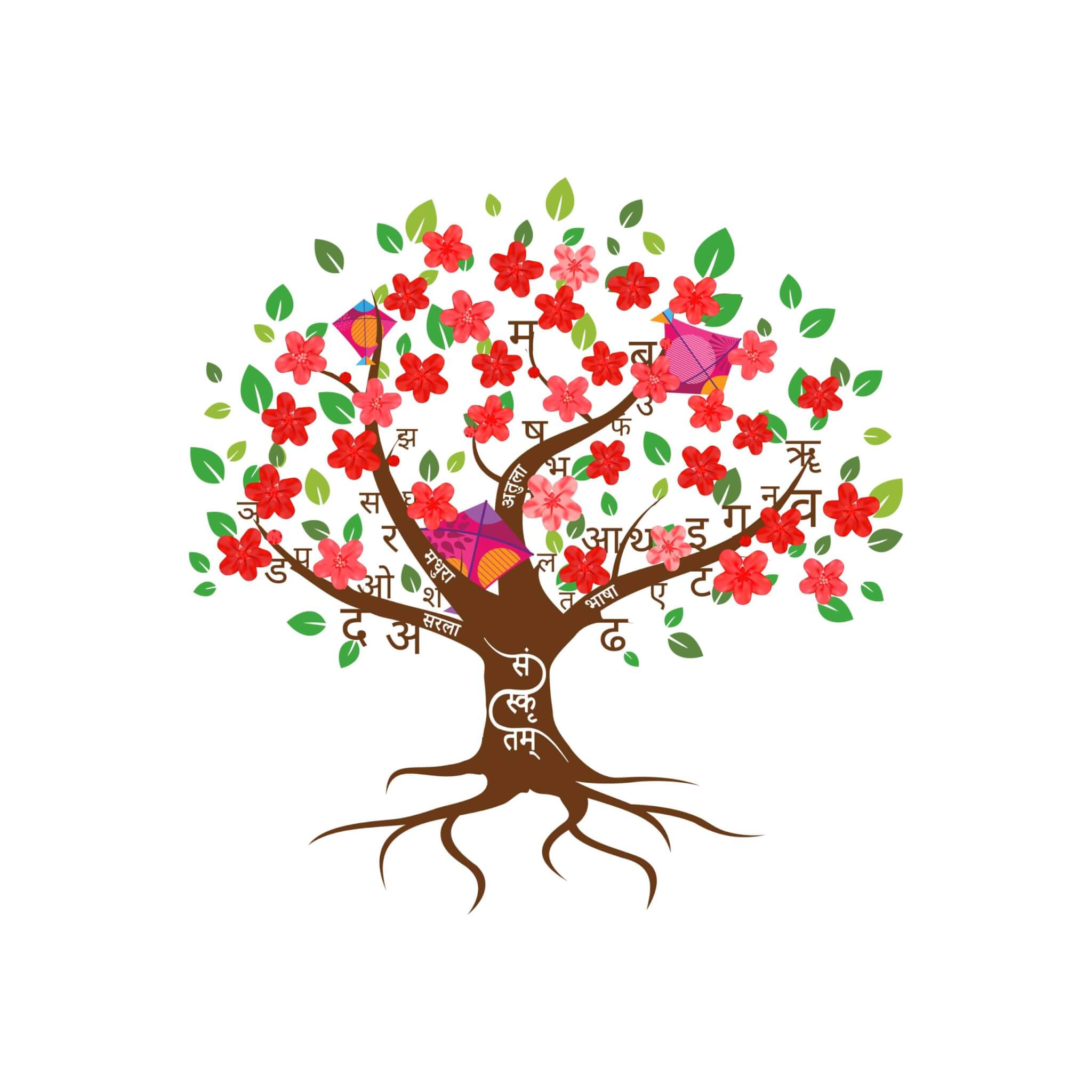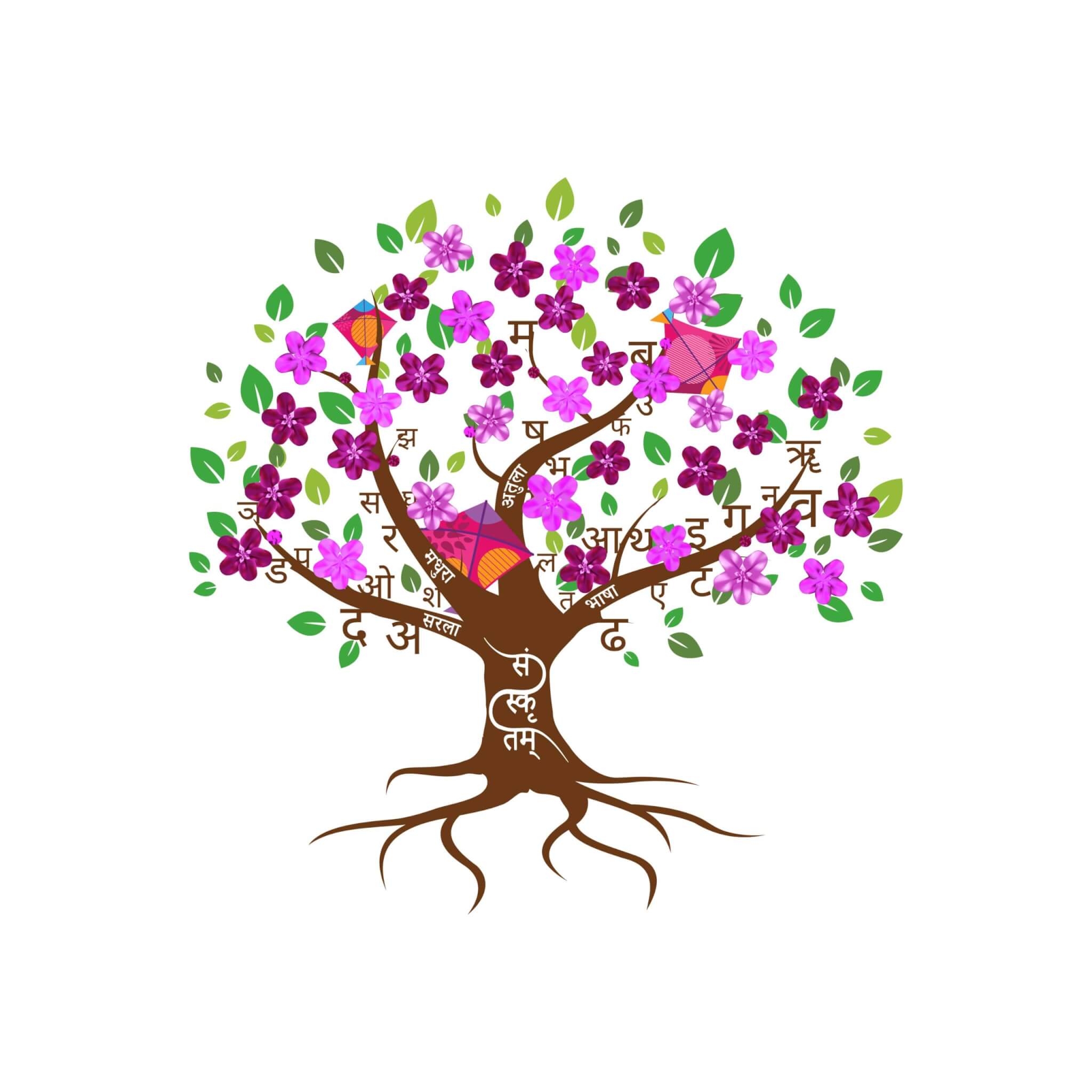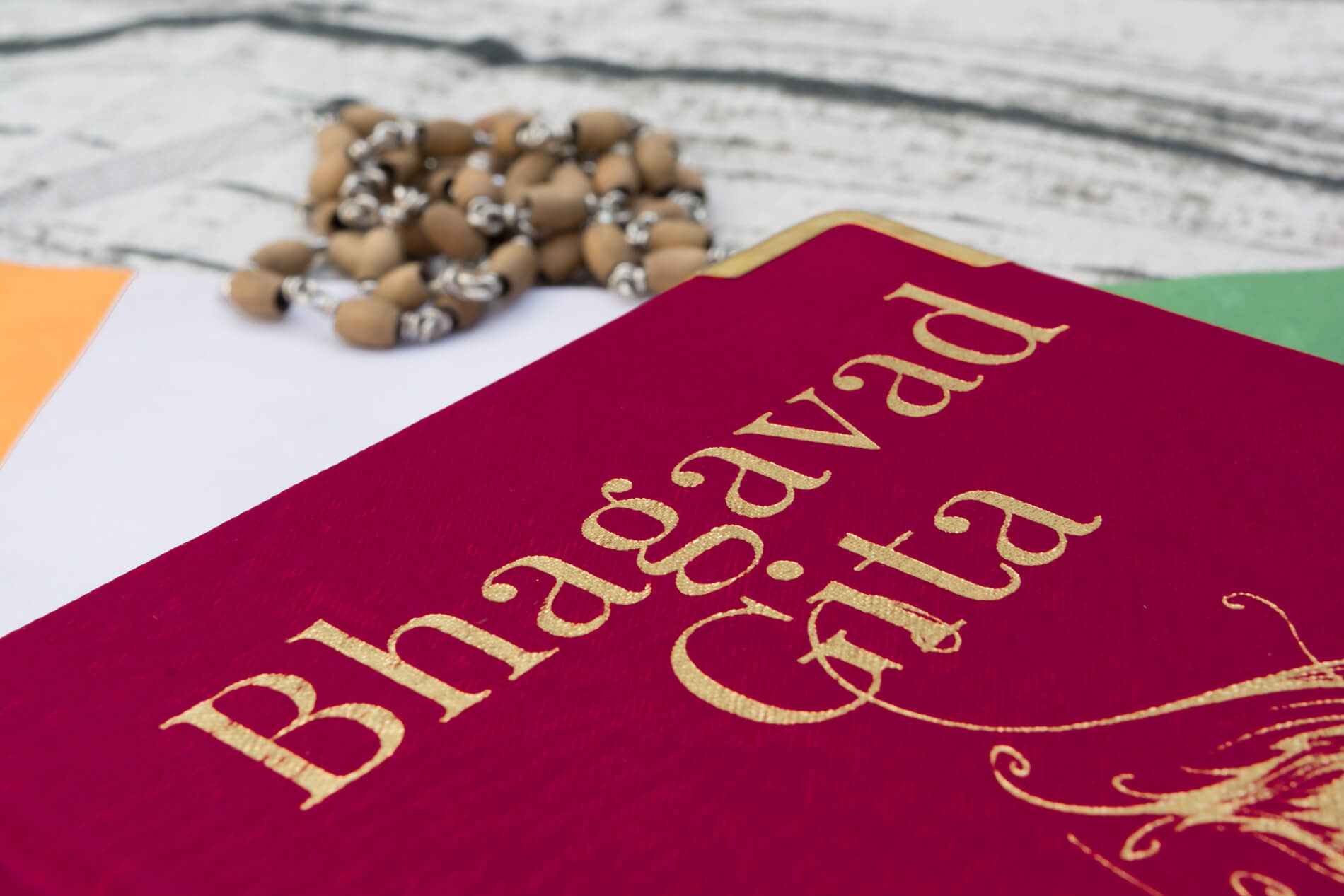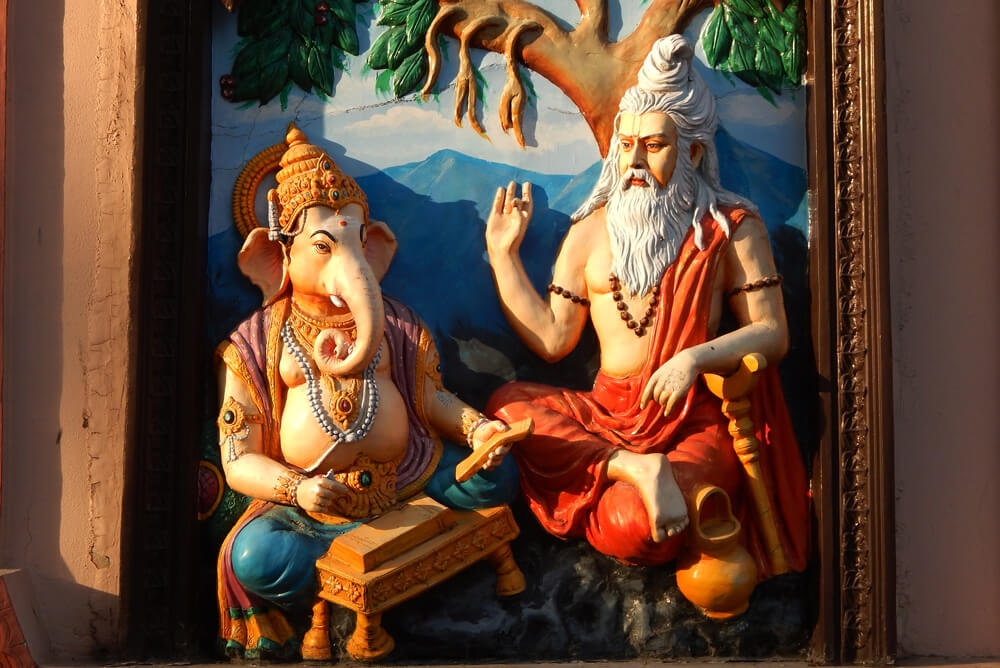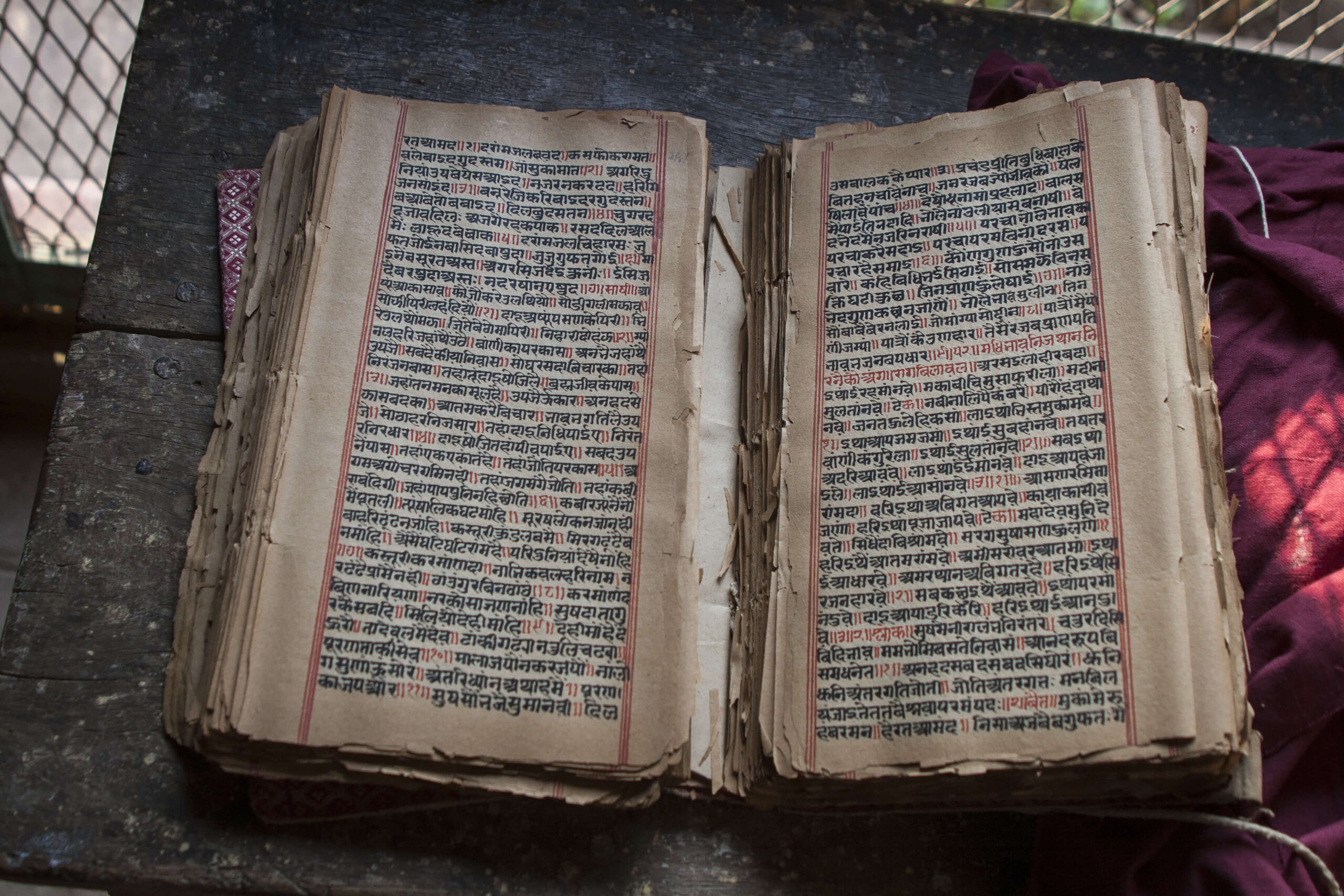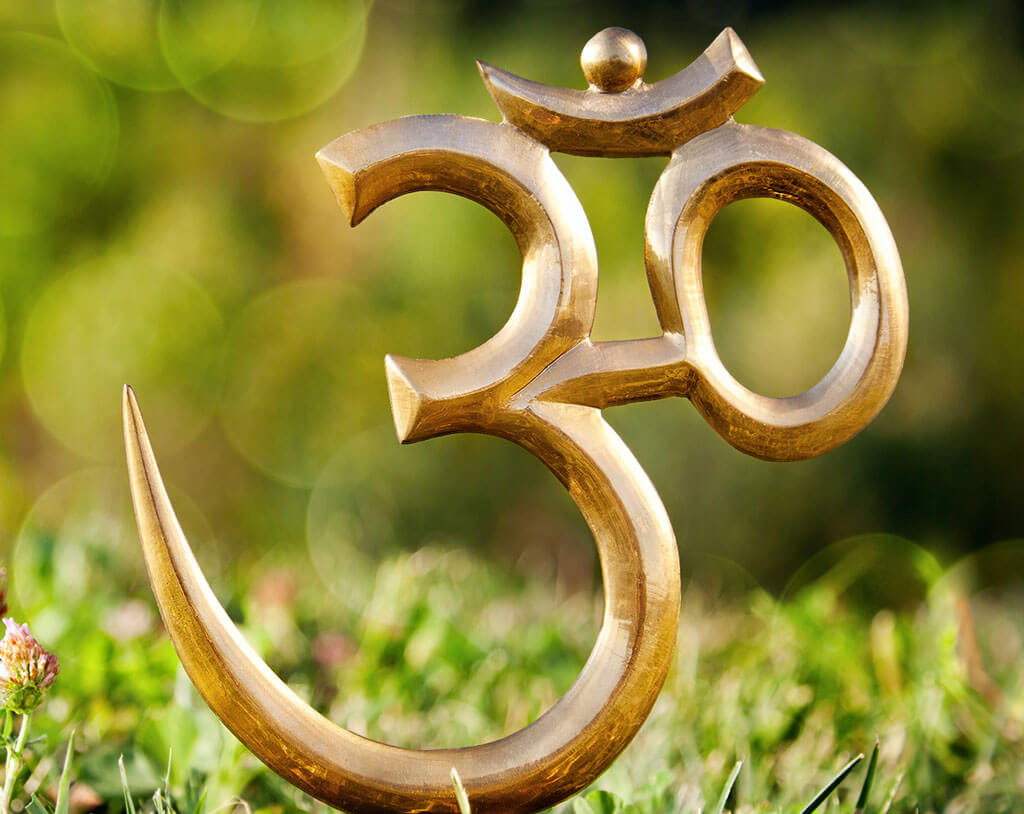Quarters / Semesters Offered: Winter 2021
Applied Vedic Science – Advanced (Vedanta)
Applied Vedic Science – Advanced (Vedanta)
Course Content:
This course introduces the student to the ontological schema proposed by three schools of Vedanta, namely, Advaita, Visistadvaita, and Dvaita through the study of their primers.
In this course students will be able to:
- Understand the various ontological schema with which the same ontological content is presented based on variation of darśanas, all of them rooted in the Vedic tradition.
- Observe the variation in language usage that the different schools of Vedanta adapted in the presentation of their doctrines.
Area of Study: Sanskrit Studies
Required / Elective: Elective
Program: MA in Sanskrit / Masters Certificate in Sanskrit
Quarter Offered: Spring Quarter
Arthasastra
Kautilya’s Arthasastra
Written around 300 BC, is a text on statecraft, a book of political realism. It deals with various topics including war and diplomacy, how a king can retain his kingdom and become a conqueror, how to make allies and know the enemies, and how to make treaties. It focuses on elements, what can be termed in modern usage diplomacy, such as the doctrine of a silent war, propaganda, secret agents, how to use women as weapons of war, and how to use religion and superstition to advantage.
According to Kautilya, “power is (possession of) strength” and “strength changes the mind.” More importantly, Kautilya emphasized power to control not only outward behavior but also the thoughts of one’s subjects and enemies. According to him, “one possessed of personal qualities, though ruling over a small territory … conversant with (the science of) politics, does conquer the entire earth, never loses.” Kautilya is the founder of Mandala Theory of foreign policy, which can be termed as a precursor of the theories of political realism and balance of power. Kautilya favored righteous war than greedy and demoniacal wars.
The course will delve into various elements of this insightful text and juxtapose the main ideas in the text with similar theories and approaches in the modern world. The students will be able to draw parallels between the core ideas embedded in this ancient text with many modern ideas.
Beginning Sanskrit – I
Beginning Sanskrit – I
Beginning Sanskrit – II
Beginning Sanskrit – II
Beginning Sanskrit – III
Holistic Yoga – Philosophy and Practice
Holistic Yoga – Philosophy and Practice
Holistic Yoga Teacher Training Foundations Intensive
Intermediate Sanskrit – II
Intermediate Sanskrit – II
Intermediate Sanskrit – III
Introduction to Bhagavadgita
Introduction to Bhagavadgita
Learning Outcome:-
- Gain a comprehensive and consistent overview of the Bhagavad Gita as both a moksha-shastra and a yoga-sastra.
- Understand the scope and relevance of the pursuits of knowledge and action in the Bhagavadgita.
- Be able to resolve paradoxes and seemingly competing viewpoints in the verses.
- Gain clarity on the meaning of moksa, karmayoga, bhakti, and meditation, in the Gita.
- Discern some of the paradigms that underlie various interpretations of the Gita.
The non-dual vision presented in the Gita has its origin in the Upanishads, where it is revealed through a teacher-student dialogue. Consistent with this, the teachings of the Bhagavad Gita are delivered through a dialogue between Lord Krishna and Arjuna. Unlike the Upanisads, the Gita discusses at length the participants in this dialogue.
The Gita also goes much further than the Upanisads in expanding the discussion of the philosophical teachings, approaching them from a variety of perspectives, sometimes precipitated by a question from Arjuna. Its uniqueness, however, lies in its elaboration of the necessary conditions for understanding its core teaching, and the means, including Ashtanga Yoga, for creating those conditions.
Our inquiry into the vision of the Bhagavad Gita presented in this course is based on the commentary of Sankara, the principal exponent of non-duality, advaita. Sankara’s is the earliest extant commentary on the Bhagavad Gita, and arguably the most consistent, as will be demonstrated in the course introduction to Bhagavadgita. of our study through an examination of paradoxical verses. As we proceed, we will also gain a clear understanding of the meaning of moksha, karma yoga, bhakti, and meditation, as presented in the Gita. And throughout the course, we will see, over the shoulders of Arjuna, the relevance of the teachings of the Gita to our lives today.
Required/Elective: Required
Prerequisites: Admission to the program of study/Must have completed Orientation to Hindu Studies or Concurrently enrolled in OTHS.
Faculty/Instructor: Swamini Agamananda Saraswati
Quarter Offered: Fall 2021
Area of Study:- Hindu Studies Foundation
Start Date:- October 9, 2021
End Date:- December 19, 2021
Day:- Saturday & Sunday
Time:- 03:00 pm EST – 04:30 pm EST
Mahabharata I: The Beginning and End
Managing Diabetes through Holistic Yoga
Managing Diabetes through Holistic Yoga
Course Description:
Yogic Management of Diabetes Mellitus is a course on holistic approach of yoga and concepts for a stress-free healthy lifestyle. In this course, students will explore the practices of yoga, such as asana (postures) and pranayama (breathing practices), along with the concept of ashtanga yoga and philosophy of yoga through the teachings of Patanjali Yoga Sutras and Bhagavad Gita. This course helps learn the role of mind in psychosomatic and chronic diseases and teaches the students the methods to calm down the mind amidst stressors.
Yoga is a philosophy-based approach to viewing oneself and the rest of the world with a paradigm-shift to bring lasting happiness through two concepts — Abhyasa (practice) and Vairagya (letting go). The deep-rooted habitual thought patterns require persevering practice (abhyasa). This course attempts to build that perseverance through sustained practice techniques. Along with it, this course also explains the concept of satvic and balanced diet and its role in management of diabetes.
This program covers 5 main curricular points:
- Learn yoga practices for management of Diabetes Mellitus.
- Understand stress and its effects on metabolic disorders such as diabetes.
- Role of pranayama and meditation in reducing blood glucose levels.
- Learn the concept of satvic and balanced diet and lifestyle for management of diabetes.
- Understand the framework of an integrated-approach to yoga based on Ashtanga yoga and pancha kosha model.
Faculty: Vinutha Kornaya, Shobha, Ishwarryah
Area of Study: Yoga Studies
Program: Community Education Program.
Required/Elective: Elective
Prerequisites: None
Start Date: 11th January 2021
End Date: 28th March 2021
Day: Every Monday & Thursday
Time: 07:00 pm EST – 08:-30 pm EST
Quarter Offered: Winter 2021
Nyaya-Vaisesika Basic
Nyaya Vaisesika Basic
Course Content:
This course examines the evolutionary stages of the Nyaya system of thought from its ancient (pracina) origins to its recent (navya) form, in the process incorporating the Vaisesika ontology into its system.
In this course students will be able to:
- Understand the evolving nature of the use of logic and reason within various technical Indic knowledge systems
- Appreciate the elaborate cognition-centric approach in Indic knowledge systems which emphasized logical reasoning and validation and mechanisms of expression
- Distinguish and apply the classification schema at the heart of the Nyaya system on other Vedic and Indic knowledge systems
Area of Study: Sanskrit Studies
Required / Elective: Required
Prerequisites: Admission into the Masters Certificate or MA in Sanskrit Program
Faculty / Instructor: Mr. Dhananjay Rao
Quarter Offered: Spring Quarter
Orientation to Hindu Studies
Course Content:
Orientation to Hindu Studies course will offer a preliminary reflection on the central themes and ideas of Hinduism leading to an understanding of the common foundations of the great variety of traditions and practices within the umbrella of Sanatana Dharma or Hinduism. It will survey the central ideas of Hinduism – covering an Ontology of key Sanskrit terms and the principal ideas that are central to the cosmology, practice, and expressions of Sanatana Dharma. It will include reflections and perspectives on these core concepts, using selected readings from source texts such as the Vedas, Upanishads, Itihaasa, Bhagavad-Gita and Puranas. But it is not a Hinduism 101 course!
The course will also review the complex challenges that arise at the confluence of Hindu and western thought. The Hindu worldview based on Dharma with its emphasis on duties and responsibilities and sustainability of life will be contrasted with contemporary ideologies and their focus on rights and privileges, competition, exploiter-exploited binary, and survival of the fittest. The distinction between a discourse of knowledge and a discourse of power will be drawn out, as two alternate paradigms. Through this, the course will develop an overview and insight into the design of the curriculum offered by the Hindu University of America i.e., the context, and the paradigm that informs that design. It will examine the impact of colonial
discourse on postcolonial Hindu experience and leave students with the pressing urgency of intellectual decolonization. And as it distinguishes between colonial perspectives that constitute the received knowledge on Hinduism, from the lived reality of Hindus, it will present the significance and importance of Hindu studies today, in a deeply moving, inspiring and transformative way.
Course Learning Objectives:
In this course students will be able to:
a) Explore alternate paradigms, various options and trajectories available within the Hindu Studies Program
b) Distinguish the central ideas and concepts that constitute the Foundations of Hindu Dharma
c) Evaluate different elective areas of study and Courses offered: Sanskrit Studies, Texts and Traditions, Yoga Studies, History and Method, Post-Colonial Hindu studies and Conflict and Peace studies.
d) Distinguish between pathways towards a deep study of Hindu thought, or towards deep engagement with western thought from a Hindu perspective
e) Discover and Create pathways for engagement with the Hindu Studies curricula
Class Structure:
There will be a minimum of 1.5 contact hours with one or more faculty every week. The class is structured in a way that promotes discussion and debate based on self-study and reflection each week. While the content being discussed in each class will be concluded within 90 minutes, the discussion time will be free format, and can continue for an additional 30 minutes. During the course, students will be required to submit one short essay. They need not be academic quality papers – but should be based on students' self-reflection on what they have learnt and assimilated so far, and what has touched and inspired them deeply.
Area of Study: Hindu Studies Foundation
Program: Certificate Program in Hindu Studies (CPHS), Community Education Program (C.E.P), Doctor of Philosophy in Hindu Studies, Master of Arts in Hindu Studies (M.A.H.S)
Required/ Elective: This course is a prerequisite for admission into Masters’ and Doctoral program in Hindu Studies. It is also a required Core course for the Certificate Program in Hindu Studies.
Prerequisites: None.
Faculty: Mr. Kalyan Viswanathan(along with others)
Time: 09:00 pm EST – 10:30 pm EST
Start Date: January 13, 2023
End Date: March 24, 2023
Day: Friday
Quarter Offered: Winter 2023







